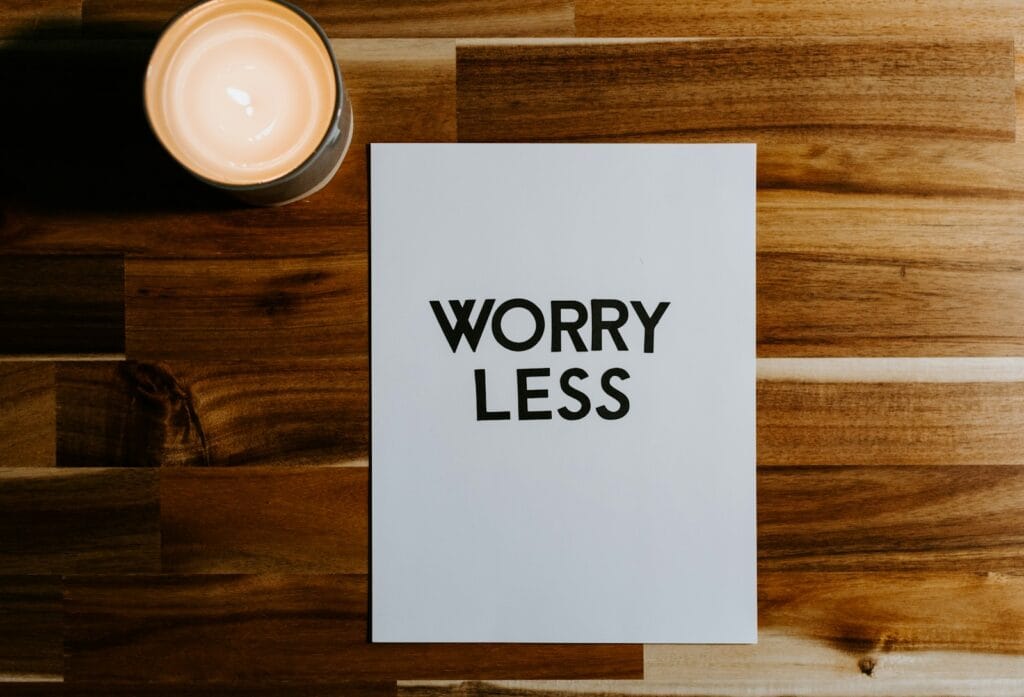This post contains affiliate links. If you make a purchase from one of the links, I may earn a commission at no extra cost to you.

What to do when you feel mentally cluttered: 5 effective strategies for clearing your mind
Ever feel like your brain’s a messy room—stuff everywhere, nothing in its place? Mental clutter can make it tough to focus, stay calm, or even get basic things done. When your mind is crammed full of tasks, worries, and random info, even easy choices can feel like a mountain to climb.
Honestly, the best way to clear out mental clutter is to stick with a few simple daily habits—like taking a few deep breaths, jotting down your thoughts, and dialing back on multitasking. Studies have found that flipping between tasks can tank your productivity by up to 40%, making that mental fog even worse. Clearing your head isn’t about a big, one-time overhaul. It’s the little things, done regularly, that really make space upstairs.
Your body and your surroundings matter, too. Getting enough sleep, eating decent meals, and just stepping outside now and then are straightforward ways to cut down on brain fog. When your body feels better, your mind usually follows along. Even a few minutes a day spent clearing your mind can change how you feel and think.
Key Takeaways
- A few minutes a day of breathing exercises or journaling can help clear your mind.
- Cutting down on multitasking and limiting how much info you take in gives your brain a break.
- Getting enough rest and decent food helps your mind stay sharp.
Understanding Mental Clutter
Mental clutter messes with how you think and function in daily life. Too many thoughts and too much info can bog you down, making it hard to focus or get anything done.
What Is Mental Clutter?
Mental clutter is all those distracting thoughts, worries, and bits of info that pile up in your head. It’s like having a messy desk inside your mind—hard to find anything when you need it.
This overload happens when:
- You’ve got too many thoughts fighting for attention
- Unfinished tasks keep popping up in your mind
- News, emails, and social feeds just won’t stop
- Old feelings or worries take up space
Mental clutter is different from regular thinking. You might feel scattered, forgetful, or just plain foggy. Decisions get harder. Sometimes it feels like your brain’s got a hundred tabs open and everything’s slowed down.
Causes of Feeling Mentally Cluttered
Lots of things can lead to mental clutter:
External stuff:
- Too much info from social, news, and emails
- Overpacked schedules and never-ending to-do lists
- Messy spaces at home or work
- Constant pings and notifications
Internal stuff:
- Putting off decisions or tough conversations (yep, that adds up)
- Perfectionism, overthinking, and ruminating
- Getting stuck on problems or the past
A lot of us try to keep everything in our heads instead of writing things down. But honestly, your brain isn’t meant to be a storage unit—it’s better at processing than remembering every detail.
The Impact on Mental Health and Well-Being
Mental clutter can really mess with your mood and how you get through the day:
Psychological effects:
- More stress and anxiety
- Higher cortisol (that’s the stress hormone)
- Trouble concentrating or staying present
- Harder to manage emotions
Everyday impacts:
- Less productive, more mistakes
- Worse sleep
- Decision fatigue—you get stuck just choosing what to have for lunch
- Less satisfaction with life
If you have ADHD, you probably know mental clutter all too well. It can also make depression feel heavier, adding to that sense of being stuck.
When your mind’s a mess, even simple tasks can feel like too much. You might feel overwhelmed, drained, and just tired of the noise in your own head.
Practical Strategies to Declutter Your Mind
Your mind needs tidying just like your room does. When your thoughts get jumbled, these simple habits can help you feel clearer and less stressed.
The Power of Brain Dumps and Journaling
A quick brain dump is one of the fastest ways to clear your head. Just grab a notebook and write down whatever’s swirling around in your brain—don’t worry about neatness or order. Getting it out of your head gives you space to breathe.
Journaling can take this a bit further. You could try:
- Morning pages: Three pages of whatever comes to mind, first thing in the morning
- Gratitude lists: Jot down 3-5 things you’re thankful for
- Problem-solving: Write about a challenge and brainstorm ideas
Just 10-15 minutes a day is enough. Even a quick session can quiet some of the mental noise.
Actually writing things down helps you process feelings and puts a little distance between you and your worries. Lots of people find they sleep better and feel less anxious when they journal regularly.
Building Effective Routines
Routines can save you from decision overload. Simple habits make your days more predictable and free up brainpower.
For mornings, maybe try:
- Five minutes of meditation
- A quick walk outside
- Reading something positive
- Picking your top priorities for the day
Evenings matter, too:
- Turn off screens an hour before bed
- Think about what you got done today
- Set out what you’ll need for tomorrow
Don’t try to change everything at once. Start with one small habit and build from there. Even five minutes can make a difference.
Prioritization and To-Do Lists
Trying to remember everything is a recipe for mental clutter. Prioritizing helps you focus on what actually needs to get done.
Some methods that work:
- The 1-3-5 Rule: Pick one big, three medium, and five small tasks for the day
- Eisenhower Matrix: Sort tasks by urgency and importance
- MIT Method: Choose up to three Most Important Tasks for the day
Don’t overload your list. Too many tasks just add to the clutter.
It’s okay to say “no” to things that don’t matter as much. Protecting your time is a big part of keeping your mind clear.
Cultivating Mental Clarity and Focus
Being clear-headed takes some intention. These habits help you cut through the noise and actually think straight.
Mindfulness, Meditation, and Relaxation Techniques
Mindfulness keeps you in the now instead of lost in your thoughts. Just five minutes of slow breathing can help—try inhaling for four counts, holding for two, and exhaling for six.
Simple meditation options:
- Body scan: Focus on each part of your body, head to toe
- Guided meditation: Use apps like Calm or Headspace
- Walking meditation: Pay attention to each step and breath
When you’re really overwhelmed, try:
- Five deep breaths
- Counting backward from 20
- Putting your hand on your chest and feeling your heartbeat
Slowing down even for a minute or two can boost mental clarity more than you’d expect.
Boosting Clarity with Exercise and Nature
Moving your body changes your brain chemistry. Even a quick 10-minute walk can lift the fog.
Try these for a mental reset:
- Morning stretches
- A walk at lunch
- Evening yoga
- A dance break if you’re feeling stuck
Nature helps, too. Fresh air and green spaces are a combo your brain loves.
Some easy ways to get that nature fix:
- Walk in a park
- Sit under a tree while you think
- Dig in the garden for a bit
- Watch the clouds or stars
These little breaks can refresh your brain and help you focus again.
Managing Self-Talk and Mindset
What you say to yourself matters. Negative self-talk just adds to the clutter, but being kinder to yourself makes space for clearer thinking.
If you catch yourself spiraling:
- Write the thought down
- Ask if it’s really true
- Replace it with something more balanced
Aligning what you do with what you care about helps, too. Less inner conflict means more clarity.
Be gentle with yourself when you mess up. Talk to yourself like you would to a friend who’s struggling.
Try shifting your mindset:
- “I’m figuring this out” instead of “I’m lost”
- “This is tough” instead of “I can’t do this”
- “What can I learn?” instead of “Why can’t I get this right?”
These tweaks can help you stay motivated and clear-headed, even on rough days.
Creating a Supportive Environment
How your space looks and feels can really affect your mind. When your surroundings support you, it’s easier to relax and think clearly.
Tidying Your Physical and Digital Space
Start with your space. A messy environment can make you more stressed, while a tidy one feels calming. Don’t try to organize everything at once—just do your desk or bedside table to start.
A few quick tidying tricks:
- The “one-touch rule”—decide what to do with something the first time you pick it up
- Spend 10 minutes a day putting things away
- Keep a box for stuff you want to donate
Digital clutter counts, too. Delete old apps, sort files, and unsubscribe from junk emails. Clear out old photos and texts now and then.
If you’re into it, minimalism can help you focus and feel more present.
Addressing Emotional States and Relationships
Your environment isn’t just physical. Some relationships drain you, while others lift you up. It’s okay to set boundaries with people who add to your stress.
Guilt and shame can make it hard to let go of stuff (or people). Ask yourself: “Does this add to my life?” If not, maybe it’s time to move on.
Add things to your home that make you feel good—a soft blanket, a favorite mug, a candle—whatever brings comfort. Little comforts help.
Don’t bottle up your feelings. Letting them out in healthy ways keeps emotional clutter from piling up.
Long-Term Strategies for Lasting Organization
Set up systems that work for you. Put things where you naturally look for them—not just where you think they “should” go.
Keep up with it:
- Quick clean-ups each week
- A monthly digital tidy
- Deeper organizing every season
Notice how a tidy space makes you feel. Does it boost your mood or help you focus? That awareness keeps you motivated.
Try the “one in, one out” rule—when you get something new, let go of something old. It’s a simple way to keep stuff from piling up.
Spending time in nature lowers stress. Add a plant to your space or just step outside when you feel overwhelmed.
Frequently Asked Questions
Mental clutter is something a lot of us deal with. Here are some common questions and practical answers.
How can I identify the signs of a cluttered mind?
A cluttered mind often shows up as indecision—you might struggle with even small choices or feel stuck. Restlessness, irritability, and trouble sleeping are also signs. If your days feel chaotic and you can’t seem to relax, mental overload might be the culprit.
Another clue? Always feeling short on time, or unable to enjoy quiet moments because your mind just won’t stop.
What strategies exist for decluttering one’s mind?
Writing things down is a super effective way to clear your head. Getting your thoughts onto paper frees up mental space.
Even 5-10 minutes of meditation can help calm racing thoughts. Just focus on your breathing and let thoughts drift by.
Setting clear priorities—like picking 1-3 main tasks for the day—can help you avoid feeling overwhelmed.
Don’t forget to take breaks. A five-minute walk or stretch can work wonders for clearing mental fog.
In what ways does mental clutter affect daily life?
Mental clutter can leave you feeling overwhelmed and more anxious than you’d like. It’s that nagging cycle where you just can’t seem to get ahead.
Productivity? That usually takes a hit too. You might notice tasks dragging on, or you’re making mistakes you normally wouldn’t.
It’s not just about work, either. When your mind’s overloaded, being present with friends or family gets harder. Maybe you snap more easily, or just zone out in the middle of a conversation.
Sleep doesn’t escape, either. Mental clutter tends to follow you into bed, making it tough to rest and leaving you groggy the next day.
Are there techniques to prevent the mind from becoming cluttered?
Having some kind of daily routine can really help keep mental clutter in check. Regular times for work, downtime, and sleep give your mind a bit of order.
Setting boundaries with tech is a big one. Instead of checking your phone every five minutes, try picking certain times to look at email or social media. It’s surprisingly freeing.
Ever heard of the “two-minute rule”? If a task takes less than two minutes, just do it now. It’s a tiny habit, but it keeps little things from piling up in your head.
Getting your body moving helps, too. Even a quick walk does wonders for clearing out mental cobwebs.
Can decluttering your space also impact mental clarity?
Absolutely. Living in a cluttered environment directly affects your mental health. Too much stuff around can raise your stress levels and make everything feel heavier.
Clearing out your space, even if it’s just your desk or a nightstand, can make a difference. It’s weirdly satisfying to see a clear surface.
Donating things you don’t use anymore feels good, too. Groups like Dress for Success and One Warm Coat take your donations and help others—so it’s a win-win while you tidy up.
What role does spirituality play in managing mental clutter?
Mindfulness, drawn from different spiritual traditions, can really help with mental clutter. Instead of getting stuck on what’s already happened or stressing about what’s next, these practices pull you back to right now.
Gratitude is another one—focusing on what’s actually going okay, even if it’s just something small. That little shift can make your mind feel a bit lighter.
A lot of people also turn to prayer or meditation for a break from all the noise in their heads. It’s not magic, but sometimes just having a few quiet minutes makes a difference.



